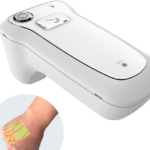When you are under treatment for a health condition, you must ensure that you’ll give your 100% commitment to it. The way you take your medication will either make or break your treatment. Remember, once you don’t stay committed to your treatment, your condition will worsen and can lead to fatal consequences.
Doctors prescribe medicines for a reason. Prescriptions aren’t only a piece of paper that gives you access to certain medication but also instructions on how to take them properly. However, prescriptions only contain the name of the medicine, the dosage, and the time when you’ll need to take it.

Contraindications aren’t usually included on the prescription paper. You must research what to avoid when taking a prescription medication. So, to help you figure this out, we have compiled the five things you need to avoid when taking a prescription drug.
Avoid Missing A Dose
Once prescribed with medication, you must ensure that you take it on time. You must avoid missing a dose of your prescribed medicine to ensure maximum efficacy. Missing one dose could be okay and can’t ruin your treatment. However, missing consecutive doses of your prescription medication can reset your current treatment regimen.
This means that you’re going to suffer from the illnesses for longer. One of the reasons patients forget to take their prescription medication is insufficient supply resulting from a lack of financial capacity. Some medicines today are expensive, and many can’t afford to fill their prescription containers.
Fortunately, a Prescription Savings card and app are now available to allow patients to acquire discounts on their medicines and fill up their prescription containers. As a result, they won’t worry about missing a dose once their supply runs out.
Another tip to help you not miss a dose is to set an alarm on your phone. Make sure to label the alarm and note the type of medicine you will take at that particular time. This way, you will be reminded to take the right medicine at the right time.
Eating Certain Food
Another thing you must avoid when taking prescription medication is eating certain foods while taking the medicine. When your healthcare provider prescribes you with medication, you must remember to ask for any food that can’t be eaten along with the medicine prescribed.
Keep in mind that some medicines need to be taken on an empty stomach as food can interact with the chemical that the medicine contains. Drug and food interaction can be dangerous. It can reduce the effectiveness of the medicine, totally blocking it from doing its job, and can have a chemical reaction that puts you in danger.
No matter how healthy the food you eat, you’ll risk your health if it is contraindicated by the drug you’re on. The most common drug-food interactions are the following:
- Antibiotics and Calcium-rich Food.
- MAOIs (Monoamine oxidase inhibitors) and fermented, cured, or pickled food.
- Warfarin and Vitamin K-rich Food.
- Prescription Stimulants and Alcohol.
- Statins and Grapefruit or Grapefruit Juice.
Altering Or Discontinuing The Dosage On Your Own
You must follow the dosage your physician recommends when starting treatment for certain health conditions. The dosage of a medication is calculated using a specific method that only doctors know.
Even if you do know how to calculate it, you should follow the doctor’s order and avoid altering your dosage or stopping it completely. Whatever the dosage your doctor indicated on the prescription is the dosage that will give you the maximum benefit of the treatment.
If you follow the right dosage of your treatment plan, your health condition will improve significantly. If you think your dosage is giving you severe side effects, immediately discuss with your doctor about the side effects you’re having.
Under or Over Hydrating
Failing to drink enough water or too much drinking water can also have an impact on your treatment. Although taking your medicine with a full glass of water is highly recommended, it’s still crucial to be careful.
Keep in mind that prescription drugs rely on water to break down and be absorbed in your bloodstream. You’ll become dehydrated if you drink less water than your body requires. As a result, the medicine will stay in your system for a long time due to infrequent urination.
Meanwhile, if you drink too much water and get over-hydrated, you’ll start urinating frequently, which means that the medicine won’t sit in your body enough, which decreases its efficacy. The more you urinate often, the more the medicine will get flushed out from your body even before it can maximize its effect.
Not Consulting A Physician Before Taking Medication
If you’re not feeling well, you should see a doctor before self-medicating. As mentioned earlier, only the doctors know the right dosage you must take according to your circumstances, and self-medicating without the assistance of a physician will be risky.
Even for herbal medicines, you must consult your healthcare provider before drinking them despite their natural or organic claim. Herbal medicines could have a contraindication to the current treatment you are in. That’s why it’s advised to talk to your doctor before you do anything that can put your life at risk.
Bottomline
By knowing the five things to avoid when taking a prescription medication, you can help increase the effectiveness of your medicines. As a result, it’ll improve the treatment outcome, improving your health.
Join 25,000+ smart readers—don’t miss out!







